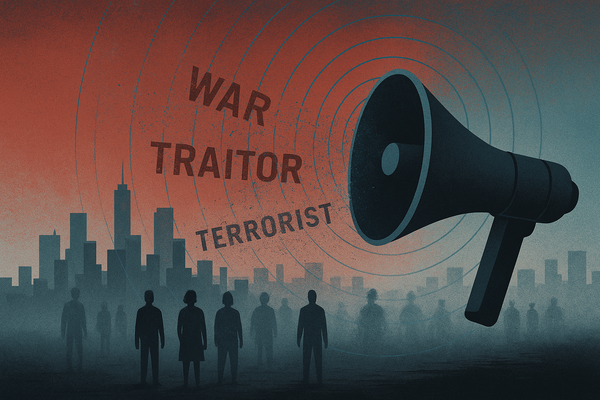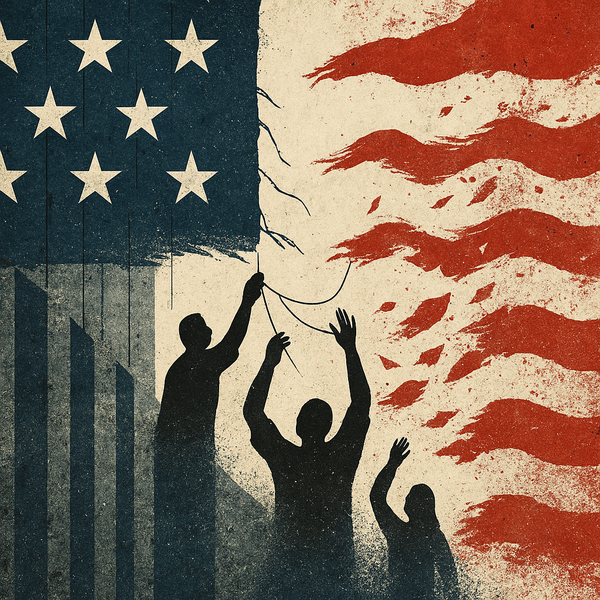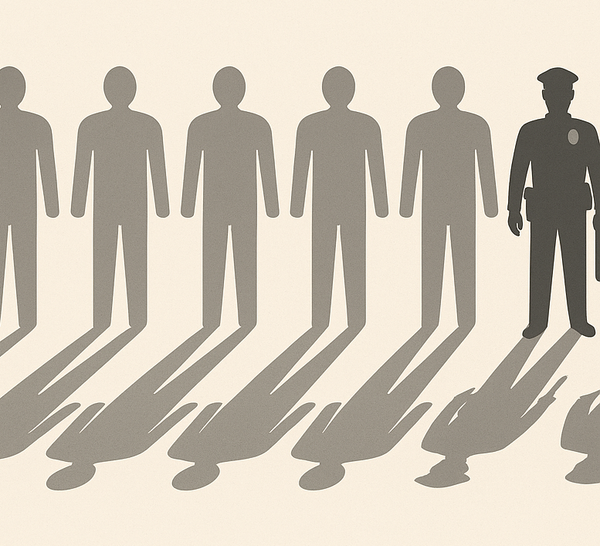Epstein, Accountability, and the Problem with “What About…?”
The news around Jeffrey Epstein isn’t going away — no matter how much some people may want it to. From the White House or South Park or my…

The news around Jeffrey Epstein isn’t going away — no matter how much some people may want it to. From the White House or South Park or my…
The news around Jeffrey Epstein isn’t going away — no matter how much some people may want it to. From the White House or South Park or my Facebook page (yes I’m still on Facebook), it keeps coming back into the spotlight.
People want to know who knew what. Who was involved? Who should be held accountable? And with that comes the usual deflection.
It’s a fair impulse. But increasingly, the question about one person — say, President Trump - gets met with a response about someone else - “Well, what about Biden?”
Or Clinton. Or Obama. Or anyone but the person we were just talking about.
These kinds of pivots aren’t always dishonest or malicious. Often, they’re born from a sense of frustration that some people seem to get away with everything while others are scrutinized. It feels unfair — and unfairness stings.
But if our conversations always shift toward someone else, we never get clarity on the topic in front of us. That’s the problem with whataboutism — it doesn’t help us hold more people accountable. It helps us hold no one accountable.
So how do we stay focused in moments like these?
Here are three simple frames to bring a conversation back on track when it starts to drift.
Imagine a student is caught cheating on a test. When the teacher confronts them, they say, “Well, John cheated last week and didn’t get in trouble!”
Maybe that’s true. Maybe John should have been held accountable, too. But right now, the issue is this student, in this moment. We can’t fix the past by ignoring the present.
This helps us remember that naming one wrong doesn’t excuse another — it just helps us deal with things clearly, one step at a time.
In a basketball game, a player fouls someone. The ref calls it. The player protests: “But the other guy fouled me earlier and you didn’t call it!”
Maybe they’re right. But the foul that just happened still counts. One missed call doesn’t cancel out another. Every action has to be judged on its own. (Ignoring of course the WNBA and their inability to call fouls that happen against Caitlin Clark).
This frame keeps us from turning conversation into a tally of past wrongs. It says: let’s address what’s in front of us, then keep going.
You’re driving 75 in a 60. A cop pulls you over, even though half the highway is doing the same.
You say, “Why me? Everyone else was speeding too!”
And you might be right. But you got pulled over. You have to answer for it. That doesn’t mean the others were in the right — it just means this is your moment of accountability. Theirs may come later.
This analogy acknowledges frustration, but keeps the focus grounded. It doesn’t say others are off the hook. It just reminds us that accountability starts where you are.
When someone says “what about…”, they’re often not trying to dodge responsibility — they may just be trying to widen the lens. And that’s okay.
But if we widen the lens too far, we lose the picture entirely.
These analogies offer a way to stay centered without shutting people down. They invite us to say:
It’s not about ignoring the rest. It’s about making space for each truth to be seen in its own time.
One thing at a time.



